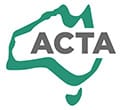|
Starting to look into the world of TESOL can feel a little bit like deciphering a secret code or staring into a bowl of alphabet soup with a bunch of different letters swirling around.
Let’s clear a few things up. Firstly:
In addition to the common name of “TESOL” it can also be called other acronyms, such as:
If you’re looking at doing training in England then you may also run into:
Now we’ve got the TESOL terms down pat, let’s dive a little deeper into the different terms around English teaching – there’s even more than the TESOL acronyms! You’ll start to see a pattern though. Some common letters you’ll run into with English teaching are:
Is your head spinning from all the letters yet? Feel like you’ve earned a TESOL qualification already just by learning all this? Not quite, but we can help you with that! Check out our:
Want to learn more about the world of TESOL for free? Subscribe to our TESOL Made Practical Blog In Australia, teaching positions are very competitive, more so than overseas or online teaching positions. Your existing qualifications and teaching experience (volunteer or paid) play an important role in what types of positions you could potentially hold in Australia.
The level of positions open to you will also depend on the type of English training provider and level of English taught. You need to be realistic about the types of opportunities available to you and in some cases, you may need to look at doing extra qualifications or volunteer work to get your foot in the door. If you are looking at positions in Australian ELICOS centres, employment eligibility and conditions for teachers and certain other English language college staff are regulated by the federal government through the Department of Education. Specifically, the ELICOS Standards 2018 set out that ELICOS teachers must:
There are further requirements for teachers who teach on English language programs in the primary or high school sector. Similarly, there are further requirements for those teachers who teach on English language programs for students under the age of 12. (Source: ELICOS Info - https://www.englishaustralia.com.au/our-sector/teaching-in-australia) If you are looking at teaching in NEAS endorsed ELT Centres, then you would be required to hold at least the following qualifications:
To break this down more: *1. a recognised degree or equivalent - NEAS expects your Bachelor degree or equivalent to be at least three years full-time (or its part-time equivalent) in length. It also says that teachers holding a degree or equivalent from overseas institutions should contact the relevant State or Territory education authority or Department of Education and Training to confirm local equivalence. **2. a recognised TESOL qualification - NEAS wants a TESOL qualification that results from a program of study having all of the following characteristics:
OR as opposed to meeting the above requirements, you can instead hold ***3. a recognised degree in education with TESOL method - for example: a Bachelor of Education with a major in TESOL. Again, teachers holding a degree from overseas institutions would need to contact the relevant State or Territory education authority or Department of Education and Training to confirm local equivalence / acceptance. (Source: NEAS Info - https://neas.org.au/resources/career-advice/#neas-teacher-qualifications) If you're passionate about teaching English in Australia, then we encourage you to keep working towards it. Right now, it might seem like there are a few things you need to check off - and that's true, but keep in mind that it always seems impossible until it's done. |
AuthorLanguage Training Institute has over 25 years of experience in the TESOL industry. |
e: [email protected]
Ph: 1300 660 809
Ph: 1300 660 809
Quicklinks
Language Training Institute is a Division of Universal Education and Training Ltd. Ltd. ABN: 75 090 720086
Australian Registered Training Organisation (RTO No. 30173).
View website terms of use
Australian Registered Training Organisation (RTO No. 30173).
View website terms of use
Where this website states:
- "Certificate IV" it is referring to the 11021NAT - Certificate IV in English Language Teaching (TESOL) qualification.
- "Diploma" it is referring to the 11020NAT - Diploma of English Language Teaching (TESOL) qualification.
- "Grad Cert" it is referring to the 11057NAT - Graduate Certificate in English Language Teaching (TESOL) qualification.
- "International Certificate" it is referring to the non-accredited specialised International TESOL Certificate training course developed by Language Training Institute.
Memberships:
© Language Training Institute (LTi) with thanks to freepik.com and unsplash.com

 RSS Feed
RSS Feed


